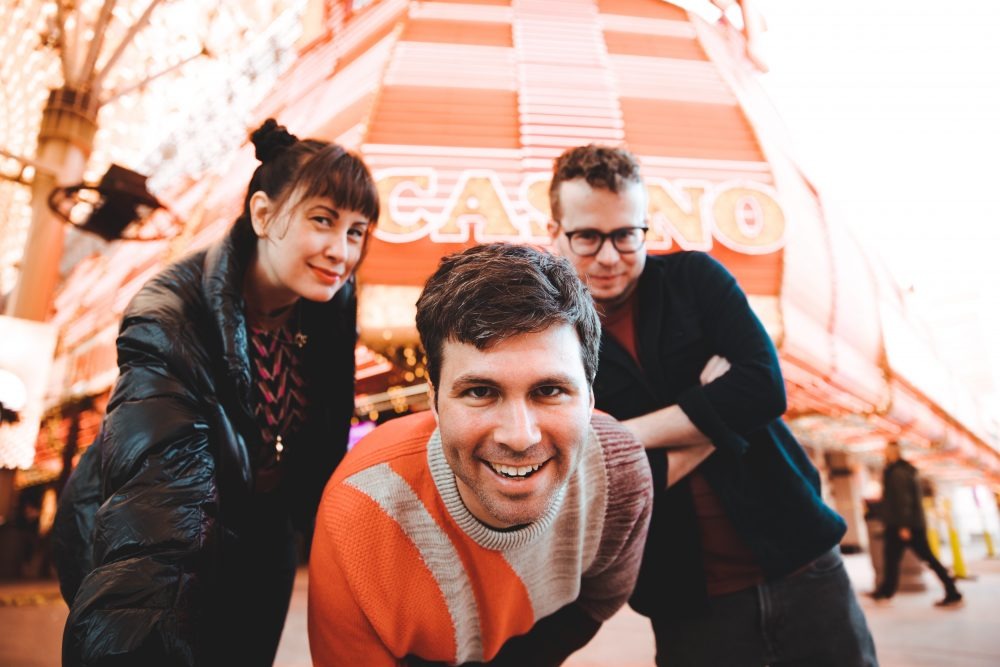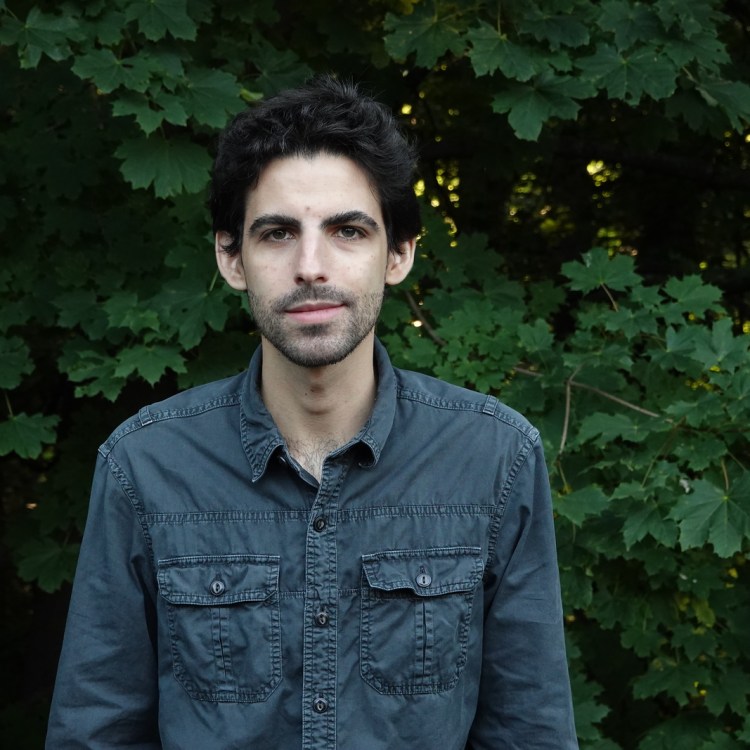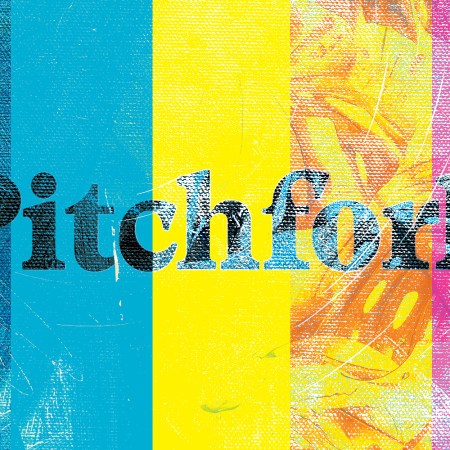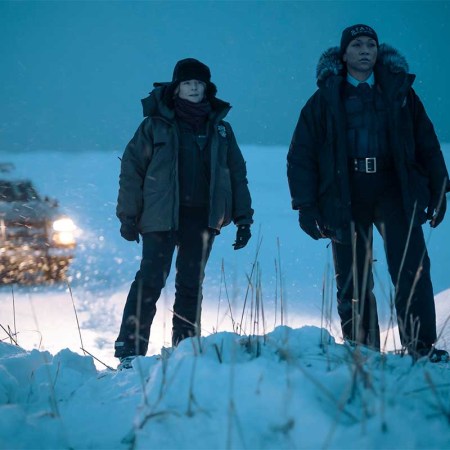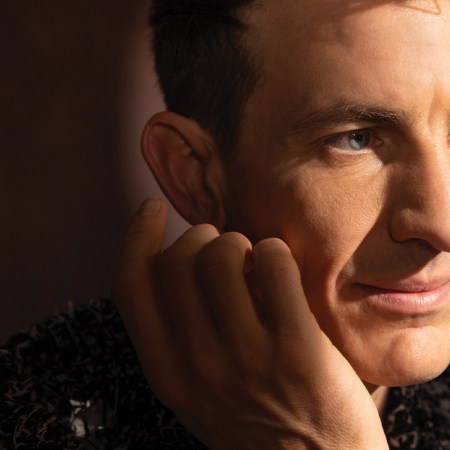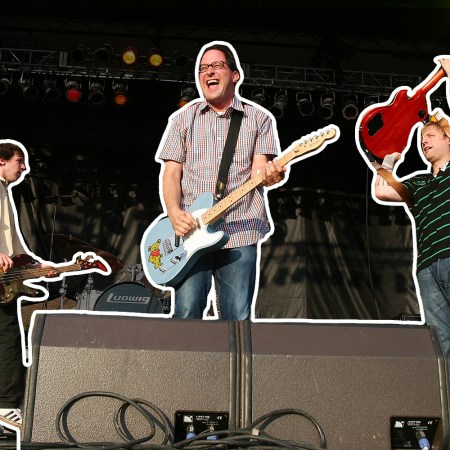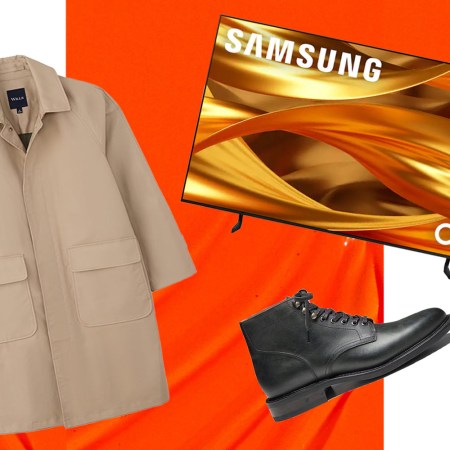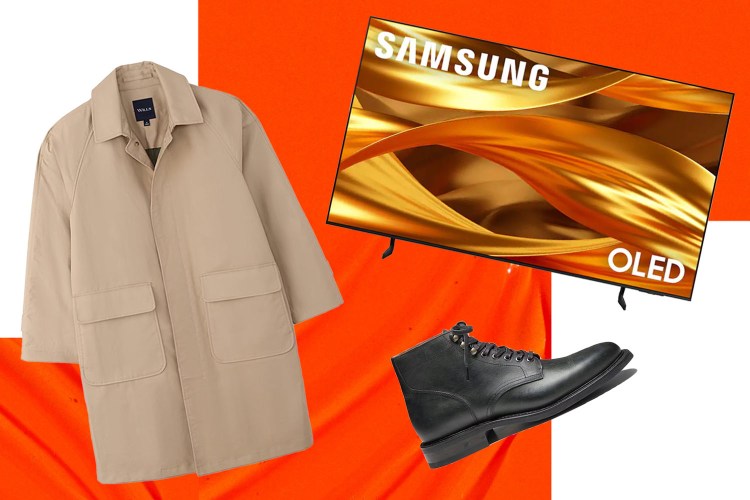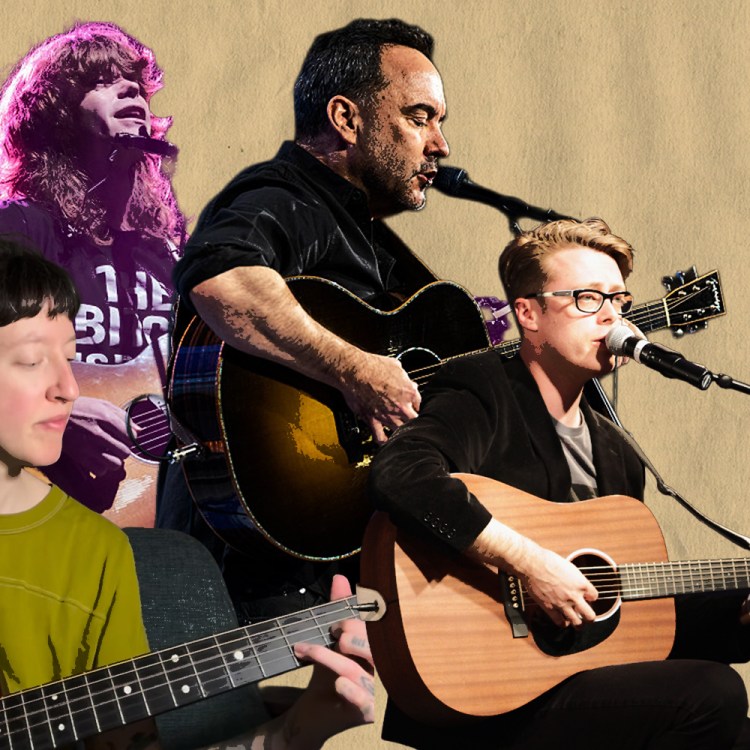“This next song is an original Cheekface composition about noodles…”
It’s a Sunday night in October 2022, and the Brooklyn club Baby’s All Right is packed with dorky twenty-somethings screaming along to a song about noodles, like some culinary cult ritual. “A big cup of noodles!’ they shout. “A giant cup of noodles!” A few songs later, the crowd is enthusiastically participating in a call-and-response segment that goes like this: “Yo.” “Shut the f*** up!” “Yooo.” “Shut the f*** up!” Then they’re grooving to a four-on-the-floor tune called “Vegan Water,” whose free-associative lyrics skewer Tide Pod swallowers, dessert-snatchers and “corporatist statist monkeys.”
Welcome to the world of Cheekface, an L.A. indie-rock trio whose quirked-up songwriting feels like the extremely online spiritual kin to groups like Ween, Dead Milkmen, The Minutemen and Fountains of Wayne (all notable Cheek-fluences). With four albums in five years — the newest, It’s Sorted, was surprise-released last week with no advance announcement — the band has emerged as one of the most prolific and exciting indie-rock outfits of the ’20s. Their growing popularity has even yielded its own vernacular: The band calls itself “America’s Local Band,” while devoted Cheekface fans are known as “Cheek freaks.”
The term was coined by someone on Twitter. “But it rhymed, so we ran with it,” says lead singer Greg Katz, who formed the band with bassist/songwriter Amanda “Mandy” Tannen and later recruited drummer Mark “Echo” Edwards.
Katz adds, “One of the best parts about this project is the amount of love that the people who love it have for it. It’s a complete and total shock to me that that developed. Especially coming from where this project came from, which is me and Mandy, who had not been playing in bands for a while, were just like ‘Hey, let’s get together and write some songs for funsies.’ And honestly, that’s all it was for a year and a half. Just, like, write some songs for funsies every two weeks, go play in some shitty bar or DIY venue, and that was all it was. And it was so fun to just make music with your friends again with no stakes and no ambition.”
Since then, Cheekface’s energetic shows, where Katz might exuberantly riff on the “Cha Cha Slide” in one breath while emitting smirky one-liners about late capitalism in the next, have become a draw; in just two-and-a-half years, on tour stops in Brooklyn, Cheekface has graduated from playing Zone One at Elsewhere (capacity: 250) to headlining Music Hall of Williamsburg (capacity: 650). They’ve amassed around 90,000 monthly listeners on Spotify without any label backing.
The group’s distinctive style and absurdist humor — delivered primarily by Katz, who talk-sings like a Millennial Jonathan Richman disciple and favors quip-sized non-sequiturs over narrative songwriting — have made them revered by a small but passionate “Cheek freak” army. Cheek freaks are known to express their enthusiasm in unconventional ways, like creating fan art depicting them as animated superheroes or getting lyrics tattooed.
“There are straight-up parody songs,” Katz says. “People are like, ‘Oh, I love what you guys did so I made this parody song of you.’ Like, ‘I wrote one in the style of Cheekface, check it out.’ I feel like there’s probably one a week.”
Cheekface’s lyrics are eminently quotable. Katz and Tannen are the smartass poet laureates for an underemployed, overanxious generation. A perfect Cheekface-ism might involve wordplay (“I contain multitudes/I contain multiple dudes!”) or spoof a pop culture reference (“Boyfriend with a soul patch/I know, I know, it’s serious”). It might make light of mortality (“Everyone cool will die/Everyone weird will also die”) or riff on iPhone addiction (“Got my old phone replaced/Now I do nothing faster than I did yesterday”).
The group’s lyrics frequently nod at anxiety and therapy, with Katz sounding like your funniest, most self-deprecating friend. No matter what, they contrast with the somber, self-pitying songwriting favored by many an indie darling.
“When we’re writing, we don’t make anything precious,” says Tannen. “We write what’s in our heads that day. And do it for fun.”
Tannen’s old band, the buzzy post-punk outfit Stellastarr*, which signed to RCA in the early 2000s and toured with then-ascendant groups like The Killers, worked differently. “Stellastarr* took months and months to write a song,” she says. “We would really hone in on every single note being played before going into the studio. We were also a part of the machine, the business. We were on a major label. Everything was on a set schedule. You couldn’t step out of that machine or everything would kinda fall apart.”
After Stellastarr* fizzled out in the late aughts, Tannen was disillusioned with the music business. Despite years of touring and recording, she had barely made any money.
“It was my baby at the time. And I put all of my heart and soul [into it],” Tannen recalls. “And then, after it was done, [I] had nothing. And the label owns everything, right? We had a great relationship with RCA; creatively, they let us do anything we wanted. But yeah. In the aftermath, it’s just kind of like, well, what happened? Where did my decade of being in love and making music go?”
Around 2017, Tannen met Katz through a mutual friend, who was dating him and suggested they should collaborate. They hit it off. Katz was an indie-rock lifer who had started his own boutique management company and who once played bass in a band called LA Font. Though he’d been playing in bands since adolescence, he had no formal vocal training, and had always been the guy who just sings one or two songs in the set.
Soon they brought in Echo to play drums. “When I joined the band, I remember I was playing in like three other bands at the time,” the drummer recalls, “and someone was like, ‘Are you sure you’re not taking on too much?’ I was like, ‘Greg is literally the busiest person I know. There’s no way this will ever be any kind of large time commitment.’”
Unlike Stellastarr*, Cheekface has never signed a record deal or even really wanted to. The band has released all of its albums through Katz’s own label, New Professor Music, which he launched in 2011. (Cheekface’s DIY bonafides are undeniable: Tannen, a graphic designer, creates all the album artwork herself with her distinctive hand-drawn illustrations.)
“After Emphatically No. came out, we did field a bunch of label calls from people being like, ‘Oh, you’re the top-selling record on Bandcamp. We’d like a piece of this,’” Katz recalls. “And, you know, great labels that everybody loves. We were just like, ‘Hey, here’s what it is. If you wanna take half of our money, you have to be able to give something to us that’s so valuable.’ They were just like, ‘Oh, we don’t know how to do that.’”
Cheekface opted to remain independent.
“We are not going to bed being like, ‘Man, why doesn’t Atlantic ever call us? Or, ‘Oh, I wish I was on Matador or whatever,’” Katz says. “We love it this way. We love to own the process. We also love owning the rights to our own music.”
A talk-singer with a wry, deadpan delivery and a disinterest in vocal virtuosity, Katz knows he’s not a conventional rock frontman. He has, at times, jokingly described his style as “talk-sing masculinity” (get it?). When I reviewed 2021’s Emphatically No., I described him as having “the energy of a guy reading tweets aloud.” While I stand by that description, it undersells the band’s melodic faculties, their gift for making talky verses flow into shoutable, earworm choruses.
That melodic quality blossoms on It’s Sorted, which buzzes with top-tier hooks on the Cake-esque “I Am Continuing to Do My Thing,” the surprisingly poppy “Life in a Bag,” and the horn-inflected “Grad School,” which might be almost a ska song? (“All our music has that question mark after it,” Tannen says with a laugh, while Katz diplomatically describes the track as “ska-adjacent.”)
Thematically, the album hones in on Cheekface’s preoccupations with navigating creativity in a late-capitalist hellscape. “The Fringe” is a rousing punk anthem for the perennial underdog: “Success is cringe, success is cringe!” Katz sings. “I wanna be on the fringe!” “Popular 2” skewers the phenomenon of Ring cameras and people spying on their neighbors. Katz wrote the song in late 2020, after spending lockdown observing his neighbor, a strange man who rarely wore a shirt and kept a head on a pike in his front yard.
“I brought that idea to Mandy as we were developing stuff for the album,” Katz says. “We were like, ‘You know what? The weird part is not that this guy is just out there living his life. The weird part is that I’m spying on him. And judging him.’”
Katz describes It’s Sorted as being united by themes of individuality and conformity and “the capitalist pressures of being a human in the capitalist system.”
If that sounds academic or high-falutin, rest assured that the album also includes a minute-long, anti-billionaire punk blast called “Trophy Hunting at the Zoo.”
The Albums We’re Most Looking Forward to in 2024
The new year will bring new LPs from Vampire Weekend, Waxahatchee and moreWith their DIY spirit, nerdy exuberance and self-effacing humor, Cheekface have become minor heroes to a community of indie musicians.
Katie McTigue, a San Jose-based musician who records irreverent anti-folk songs under the name Pacing, discovered Cheekface in 2022, when they showed up on the “Fans also like” section of her Spotify page. She quickly felt like she had the same brain as them.
“I just immediately was obsessed,” McTigue, 29, says. “I hit play on Emphatically No. and in 30 seconds, I was Googling ‘Cheekface tour tickets.’ I’m in their Discord and stuff. I’m all up in Cheekface world.”
McTigue admires the relatable aspect of Cheekface’s songwriting and how the lyrics are conversational — things you might actually say out loud to a person. These qualities inspired her recently released debut album, titled Real poetry is always about plants and birds and trees and the animals and milk and honey breathing in the pink but real life is behind a screen.
“They’ve kind of given me permission to be weirder and more candid,” McTigue says. “I wrote the song ‘Live / Laugh / Love’ very shortly after I had gone down the Cheekface rabbit hole. Previously, I might have been like, ‘OK, that’s not going on the album, that’s not a serious song.’ But after discovering Cheekface, I was like, ‘Oh, no, I can actually do whatever I want.’”
As a DIY musician, McTigue also looks to Cheekface for business guidance. “Cheekface is an amazing role model for being a band in general — especially without a label,” McTigue says. “I certainly look to them when I’m like, ‘How do I do this thing? How do I do radio? Well, OK, how is Cheekface doing it?’”
Across the pond, Cheekface has had a sizable impact on Superfriends, an indie-punk band based in Brighton, England. “I love how they make mundane topics sound so interesting and funny. This is a quality all my favorite songwriters share — other examples are Courtney Barnett and Damon Albarn,” says Superfriends guitarist/vocalist Harry Atkinson. “I love that they just always do things their own way and don’t let anyone else’s opinions get them down.”
Atkinson now helps moderate their Discord server. Along with one of the fellow moderators, Timber Rodriguez, he is also currently organizing a charity compilation of Cheekface cover songs (submissions are open through March 1), which will benefit transgender rights organizations.
“Cheekface have such a strong connection to their fanbase, and I think this has played a big part in their rise,” Atkinson says. “I don’t think I’ve been in another fandom before where the band feels so close, and that applies especially to their Discord.”
For now, as they embark on an extensive spring tour, Cheekface have no current plans to slow down. But nor do they plan to be still shilling in their 80s like the Rolling Stones. “I hope to continue having fun,” Katz says, “and the minute it’s not fun anymore, we will surely stop doing it.”
This article appeared in an InsideHook newsletter. Sign up for free to get more on travel, wellness, style, drinking, and culture.
